“You Don’t Look Sick:” Results of the Blood Cancer In America Survey
People rarely realize the true impact a blood cancer diagnosis can bring until it happens to them. From the debilitating fatigue and the unpredictable neuropathy to the impact on personal relationships, blood cancer can affect every aspect of life.
We conducted a survey to gain a better understanding of people’s experiences with blood cancer. More than 1,600 people with blood cancer completed the survey, revealing how blood cancer and its side effects can have a lasting impact on quality of life and mental health, even after treatment is over.
Impact on personal relationships
Living with blood cancer has a great impact on personal relationships whether it is positive or negative. About a fifth of our respondents say it has negatively impacted their relationships. One community member shares, "It has definitely impacted my relationships because while others try and understand, it feels difficult for me to try and express my thoughts at times to those who have not gone through a cancer diagnosis."
Side effects happen, even after treatment is complete
Many people do ot realize that blood cancer treatment side effects can impact you, even after treatment ends. It can be difficult for others to understand the long-term effects cancer can have on your body. Of those surveyed, only 8 percent of people have had no symptoms or side effects from their blood cancer treatment in the past month, and only 34 percent of people strongly agree that they can effectively manage their fatigue.
It is hard for others to understand
Isolation and loneliness are common feelings experienced by people with blood cancer. There are many things like symptoms, costs, and treatment that others do not really understand. More than 20 percent reported that friends and family do not understand what they are going through or have no one to talk to.
Some things community members have shared is that they "feel isolated and feel like I need to pretend everything is ok" and "fatigue is my main symptom, my friends and family don’t get this, it makes me feel isolated."
Working with blood cancer
On top of treatments, side effects, and everything else blood cancer brings, trying to maintain employment can be especially challenging. Our community members report feeling forgotten and alone because they do not "look sick" and often have symptoms that are not visible to other people.
For many people in our community, it is difficult to ask for appropriate accommodations at work. Of the 31 percent of people with an employer, 26 percent do not feel comfortable requesting flexible working hours, and 18 percent do not feel comfortable asking for time off.
One community member says, "It's extremely difficult to feel believed" when talking about the impact of their diagnosis on their daily life.
A positive outlook
Although blood cancer impacts quality of life in many ways most remain hopeful. Looking forward, nearly 66 percent strongly agree they are not going to let blood cancer stop them from making long-term plans, and more than 33 percent strongly agree they are optimistic thinking about the future. "It's been a long painful road for me but I'm in remission and things are improving. I’m thinking positive for the future."
If you are looking for support, please reach out to our Blood-Cancer.com community. You can also post a question or topic in our forums or share your story.
The Blood Cancer In America survey was conducted online from January through April of 2021. Of the 1,620 people who completed the survey, 370 were people who have been diagnosed with multiple myeloma, 357 were people who have been diagnosed with lymphoma, 516 were people who have been diagnosed with leukemia, 250 were people who have been diagnosed with MPN, and 127 were people who have been diagnosed with MDS or another blood cancer.
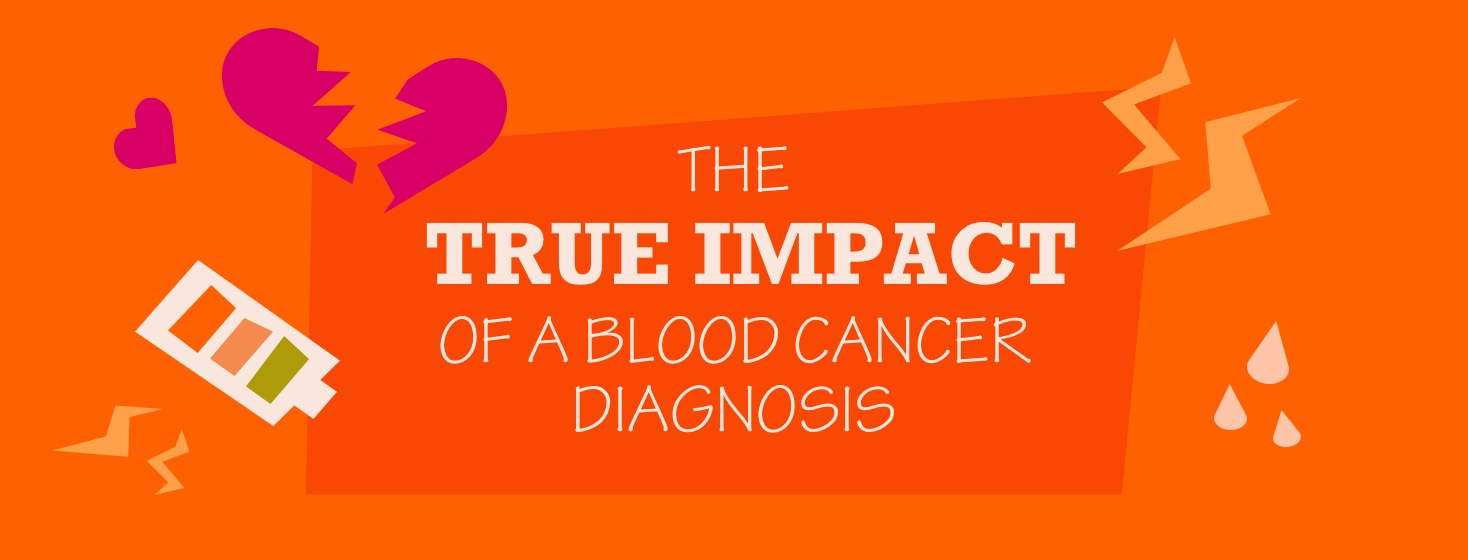
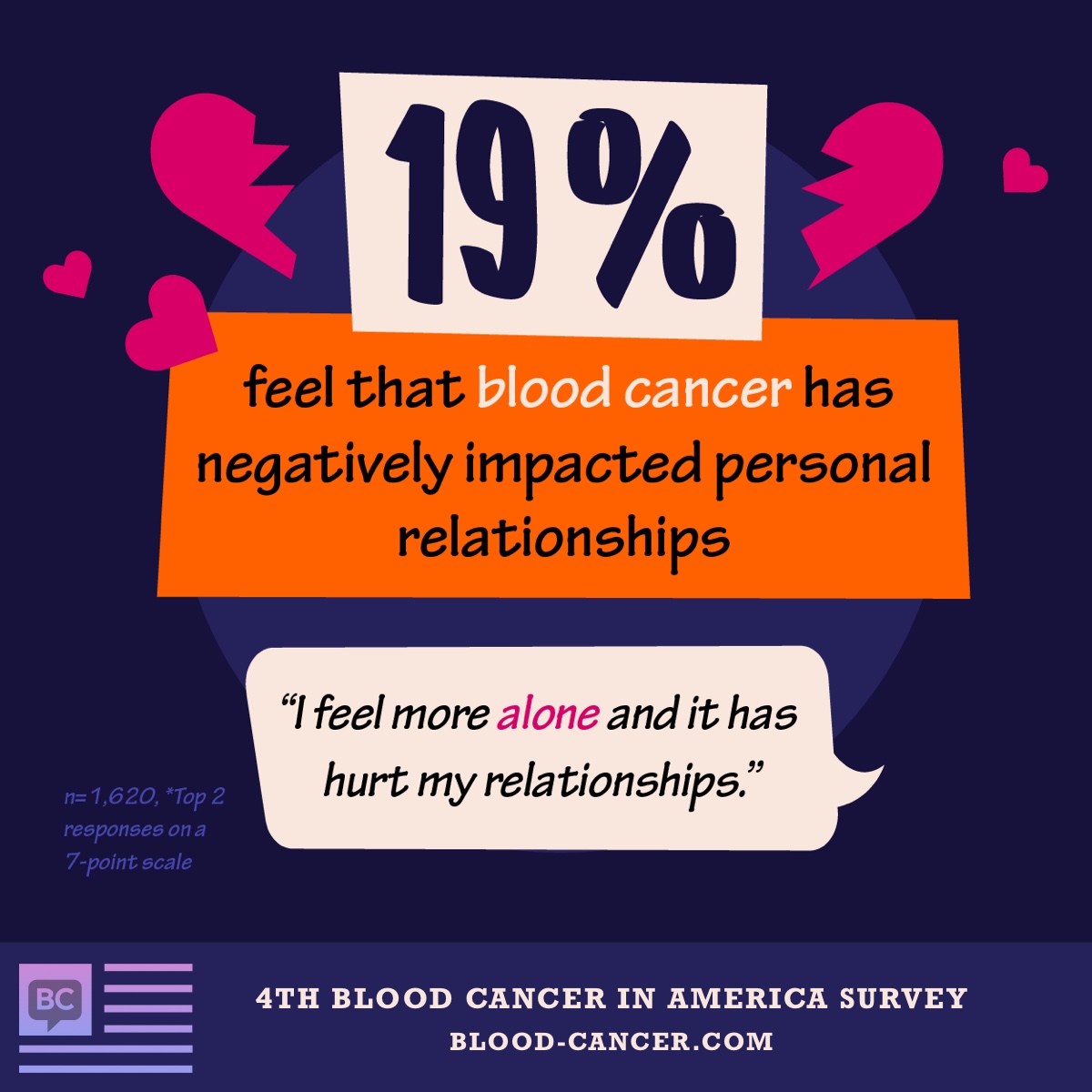
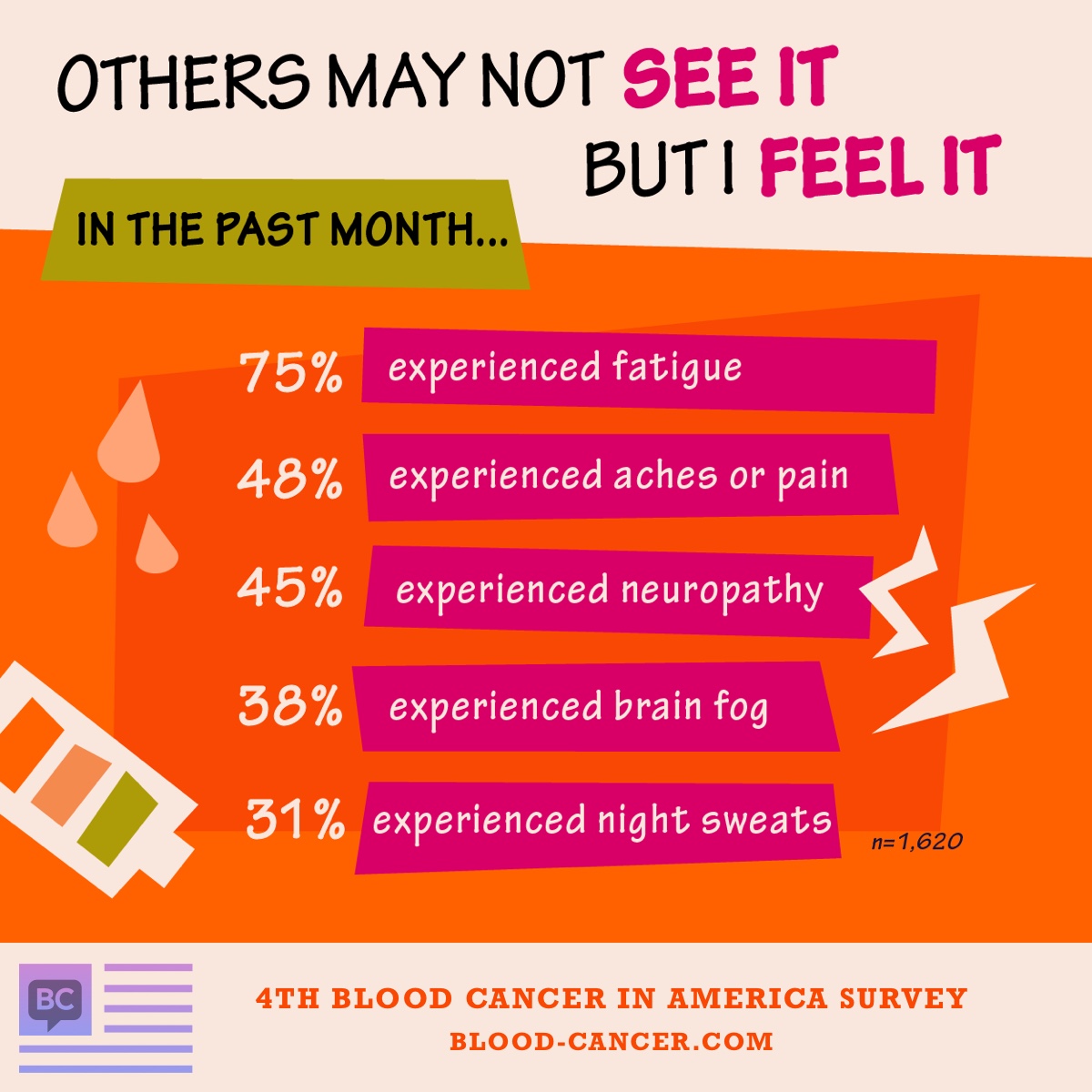
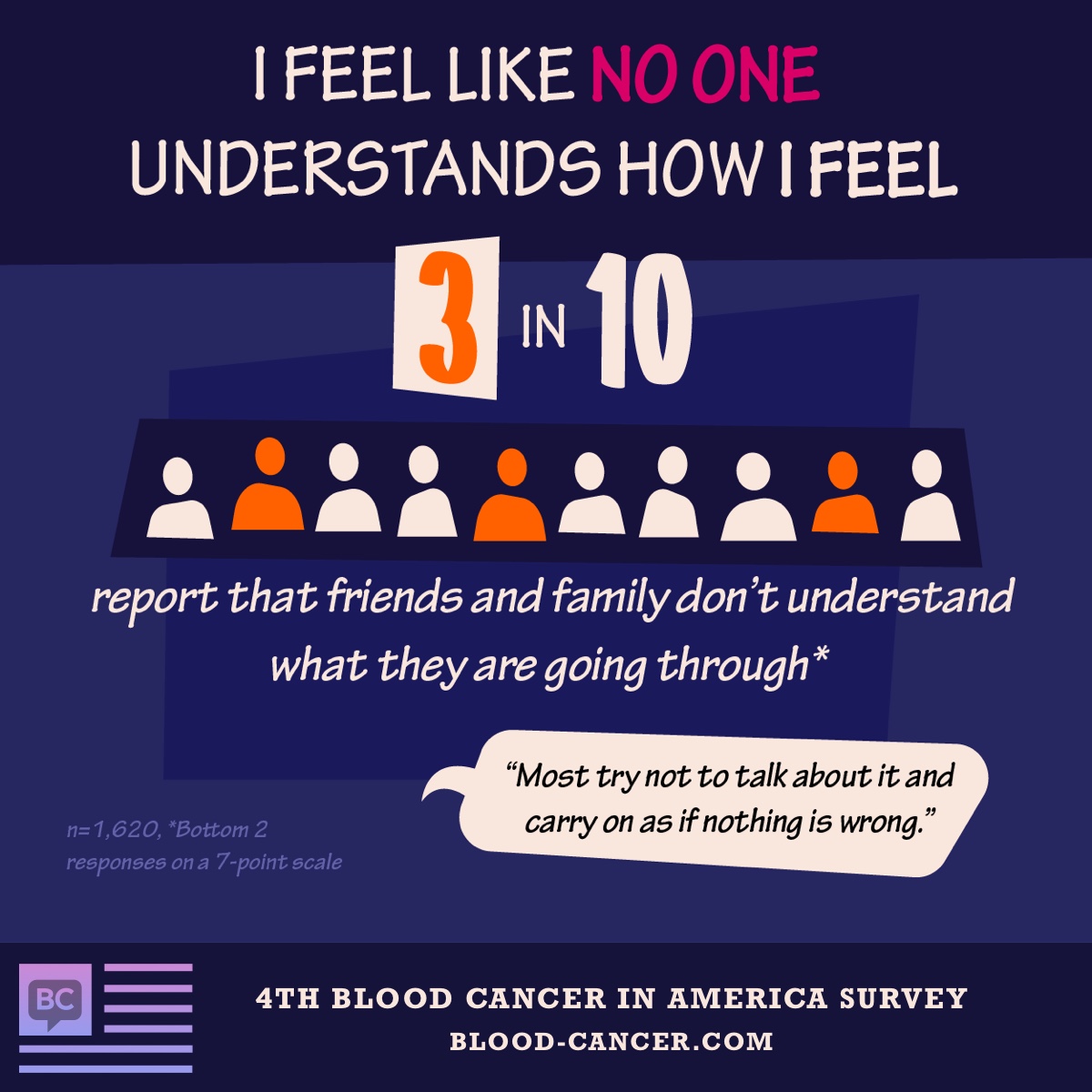
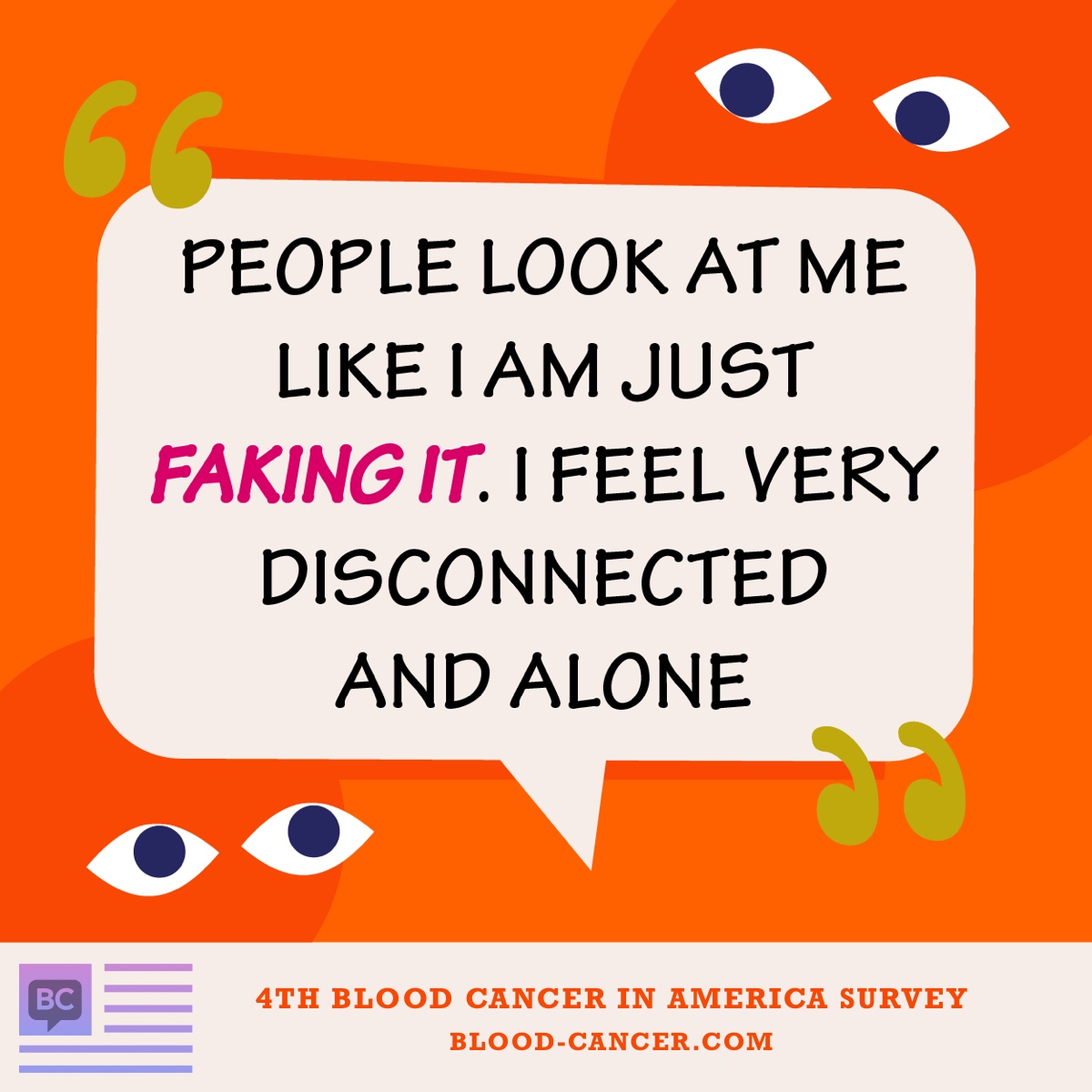
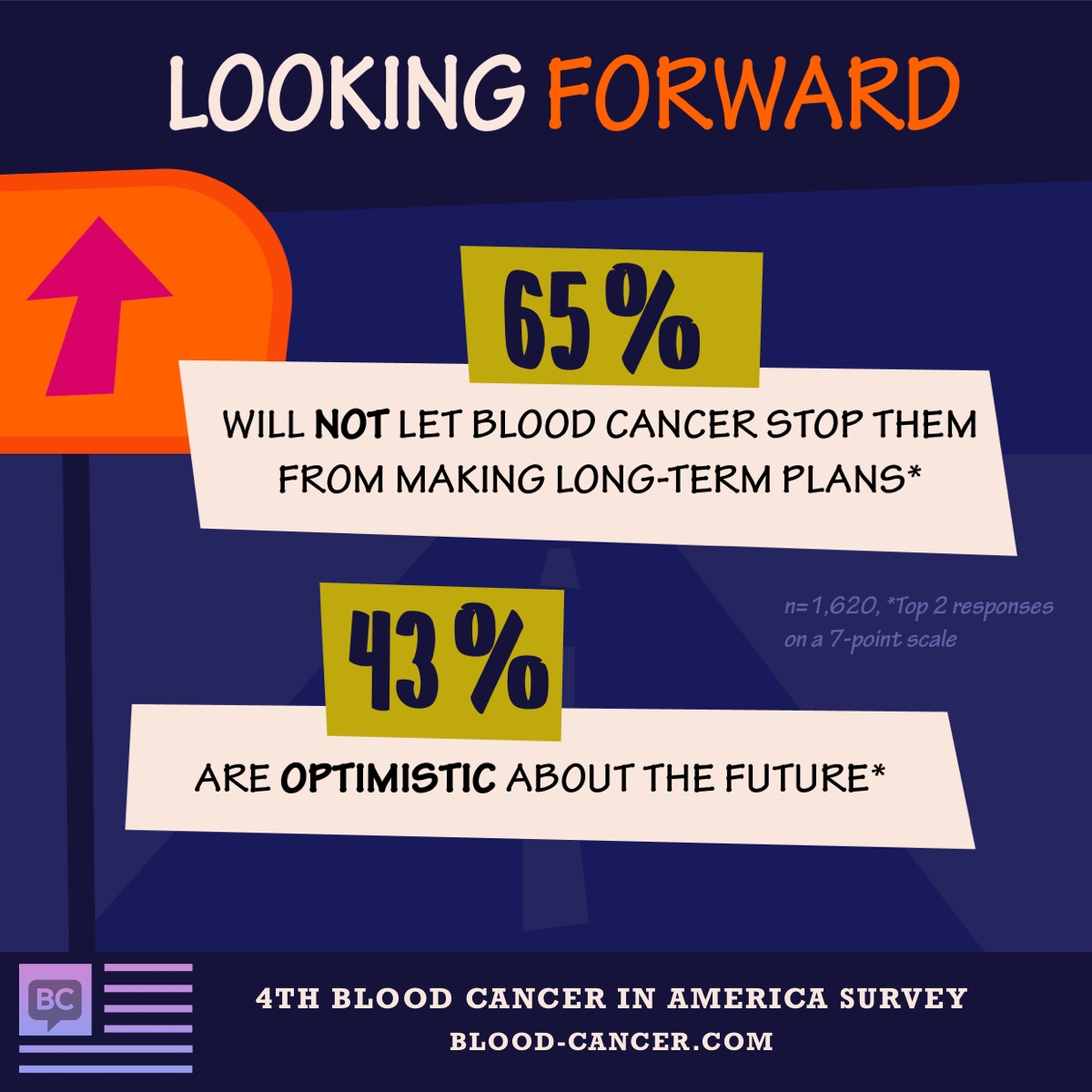
Join the conversation